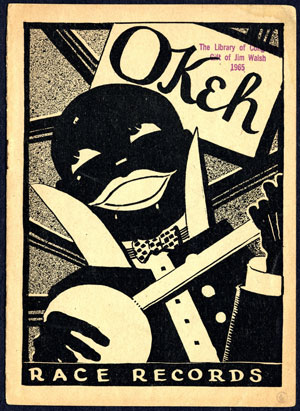
Any idea what “race records” are? Could they be the data the UIL keeps in Austin each spring when high school track and field events occur? Not really. Maybe they keep the results of the Kentucky Derby? Guess again. They popped up in the 1920s when music recordings became popular.
But “race records” were limited to a certain group or race of Americans. They were music for Black audiences. During the time Jim Crow laws ruled the South, Blacks were excluded from most white culture. This led to the Great Migration, when Black men and women and even families moved north for better jobs, for a better life in the 1920s.
Race records were advertised in Black films, music, and publications. While a record would cost two hours work, they sold quickly because the performers were seldom paid. Whites were seldom aware of or even cared about this new art form.
Ragtime, vaudeville, all-black orchestras began in 1890 when George W. Johnson first recorded a “race record.” In 1920, a black musician named Perry Bradford went to Okeh (Okay) records in Chicago. He convinced the company to record Black musicians and sell the records with the “foreign” records. Hesitantly Okeh records began with Mamie Smith, a blues singer who recorded two songs. Immediately about 75,000 records sold. When Smith recorded “Crazy Blues” later, it sold 100,000 records and led the way for other record labels to get on-board. However, most race records were owned by whites, who often exploited the muscians in several ways.
Gradually whites became aware of the new music styles. The music was then rebranded as Rhythm and Blues. By the 1930s, the music was a way to survive the Great Depression.
A Greenville native set a precedence for “Race Records”. Arizona Dranes may have been born in rural Hunt County. She became known as the first pianist to make a gospel record. She created a spirit/flesh communion that would later be known as the “Gospel Beat”. Yet, she was known for playing ragtime, barrelhouse, and boogie-woogie.
In the 1930s Dranes became valuable to the Church of God in Christ for her musical talent that drew new members to churches throughout Alabama, Georgia, Texas, Ohio, and finally California.
If anyone has knowledge of Arizona Dranes, please contact me at carolcoleytaylor@gmail.com. I really want to know more about this incredible woman.
